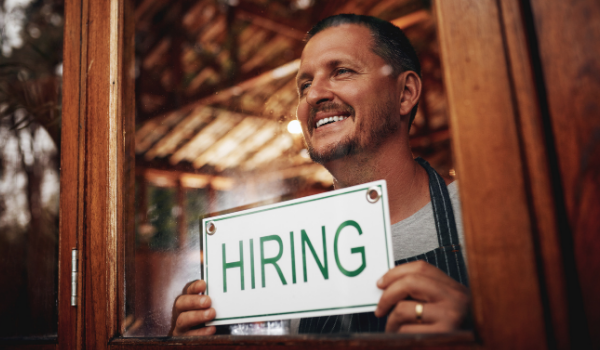When lockdowns were enforced across the country earlier this year, it was a disaster for many businesses and employees in the hospitality industry. Most venues were either told to or chose to shut down to some degree, leaving many people out of work.
But now with the arrival of summer and COVID-19 restrictions easing across Australia, operators have an opportunity to reclaim some of the losses from a long Winter/Spring. People are excited to get out and catch up with friends, often over a drink or a nice meal.
Unfortunately, operating during this time will come with its fair share of niggles and hurdles. Social distancing guidelines will certainly keep you on your toes while navigating your venue, and finding a balance between takeaway and sit-down dining can be tough.
What’s perhaps the biggest industry issue though, is finding new staff. Following on from months of unemployment the situation has seemingly flipped, with a staff shortage hampering the efforts of many businesses aiming to accommodate more guests.
How is this possible? Backpackers.
Backpackers or those on working holidays, have for a long time made up a large and much-appreciated percentage of the foodservice workforce in Australia. These workers were the backbone for many restaurants, cafes and pubs across the country. But many were forced to return home after finding themselves ineligible for Federal Government’s JobSeeker or JobKeeper payments.
Chief executive of Restaurant and Catering Australia has said that there was only one skilled applicant for every ten jobs advertised because of this loss of foreign workers.
Owners have been outspoken about issues they’ve encountered. Melbourne pub owner Nick Allardice said that usually he’d receive up to 60 applicants when advertising for positions, but since the lifting of lockdowns in Victoria his attempt to find new recruits was less successful.
Another Melbourne operator is facing similar problems. Bigger Than Texas food truck owner Paul Stafford has said “I’ve never been in this situation in Melbourne, and I’ve been trading in hospitality for a long time. It’s very challenging at the moment.”
Regional venues have also felt the loss of their crop of foreign employees. Mrs Newbey of The Carnavon Hotel in Western Australia said that they have been searching for a new chef since June and hadn’t received an application.
“I’m advertising for chefs, I’m advertising for bar staff, housekeepers — you can’t get them,” she said.
With international borders closed for what will likely be a while, it’s unclear where to find skilled and passionate workers to fill the roles left by departing backpackers. To make matters worse, there’s a chance that hospitality’s stigma might be steering potential employees away as well.
Reports of wage theft and employee burnout have made headlines in recent times, shining a light on some of the issues that have plagued the industry in the past. This only adds to the pressure and uncertainty of taking up a career in hospitality right now.
But for anyone weighing up their career in foodservice, there is some incentive to do it now as food writer Dani Valent explained to ABC News:
“I think it’s definitely a seller’s market at the moment. If you are a hospitality employee, you shouldn’t settle for anything but good conditions because they need you.
“March is going to be a crunch time when JobSeeker reduces and JobKeeper dries up. We’ll certainly see some businesses fail and we may see more people coming into the marketplace.”
Australia’s hospitality industry is not alone with this issue, with neighbouring New Zealand’s migrant-reliant sectors suffering from similar problems.
Solving the conundrum of replacing international staff might take some time, but one simple solution in the meantime is being vocal on social media. There’s lots of places looking for staff so it’s important to share openings with friends and followers alike. If you’re passing by neighbouring venue and see a poster asking for applicants, sharing a pic of it to your network could really make a difference.
It’s likely that the industry will be faced with a multitude of little niggles like this, but a stronger bond across the industry as a whole will allow us to adapt and solve problems faster.
